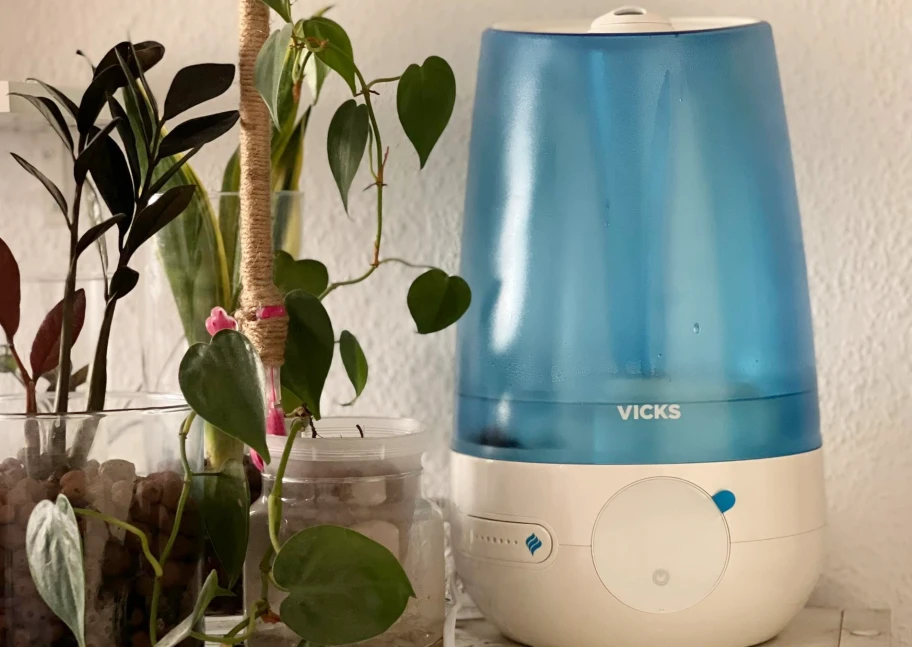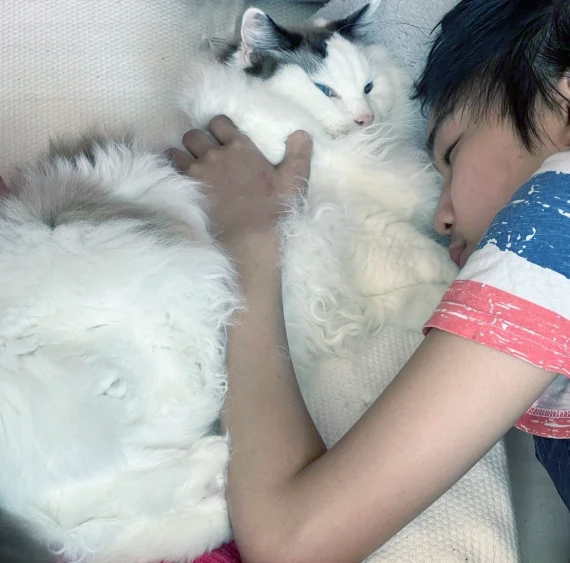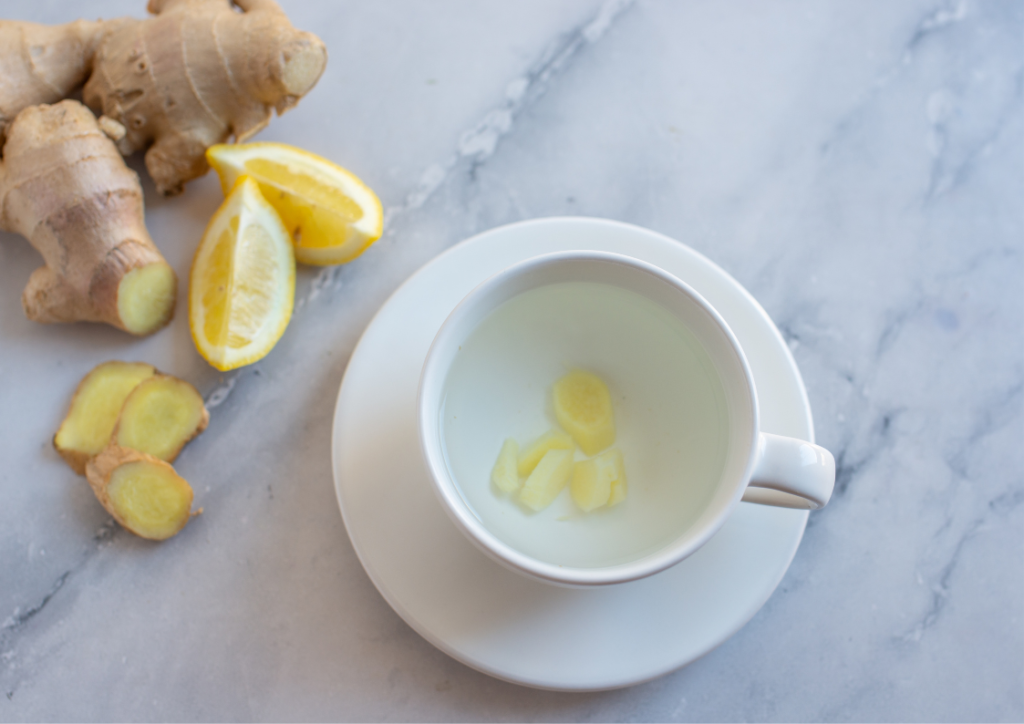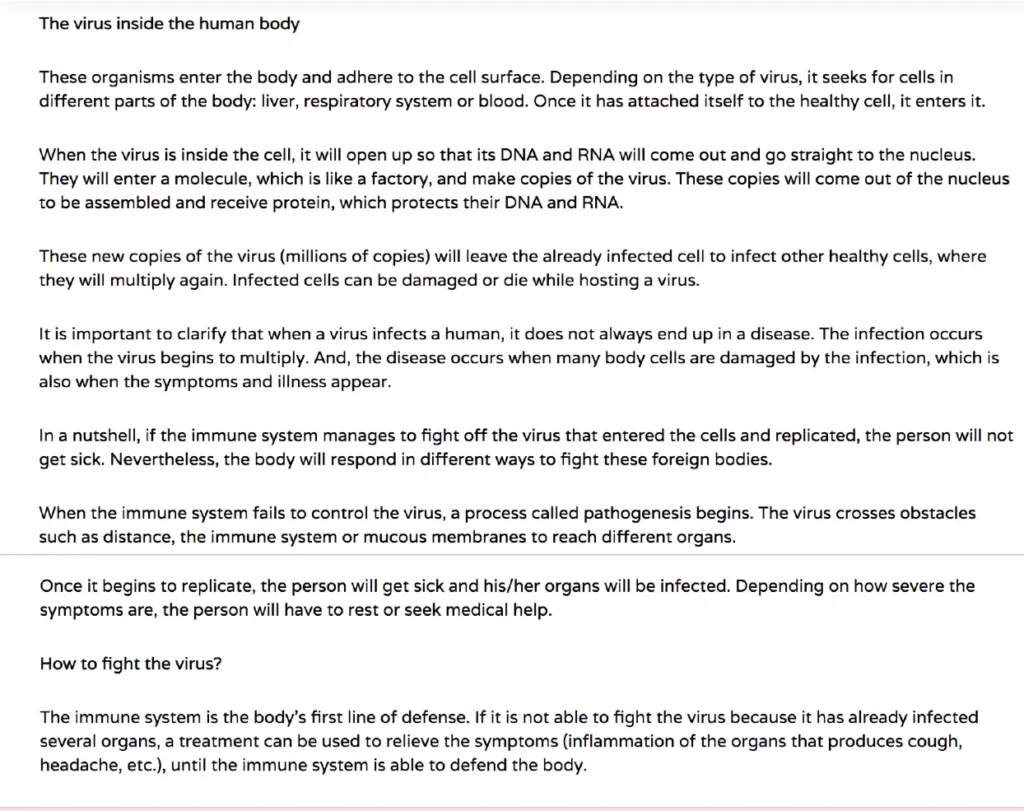
How To Treat Mild Covid-19 Symptoms at Home : Cool Mist Humidifier
“We thoroughly researched the health-related references in this article, but this is not meant to be medical advise. We also consulted our doctor about what to do best. These are our own experiences on how we dealt with Covid-19, our circumstances are different from yours. Please consult your doctor regarding your health.”
It was March 12, 2020 when the government announced the first lockdown in Austria. We weren’t given a specific timeframe how long it would last, but as good citizens, we followed protocol. We waited for it to be lifted but only extension after extension came. Schools were fast to act on decisions about staying home for online classes, companies also complied, so did hotels and restaurant-owners. We were happy campers in its literal sense – we love being at home even when we’re doing our jobs or schoolworks. ^_^ We also have more time to strengthen our spirituality, in effect our positive attitude to this pandemic.
In June 2020 the lockdown was finally lifted, albeit with a lot of restrictions – which was totally okay. We only managed to visit a nearby town (Laxenburg) that summer as flying was strictly restricted. Thankfully, none of us nor our close friends have contracted the virus by then.
We had our vaccines as soon as provisions for our age groups were given. We also got the booster when the government recommended its citizen to do so. Austria went into lockdowns many more times within the 2 years with the last one on November 22 to December 12, 2021 for unvaccinated citizens.
We know that sooner or later Covid-19 will catch up to us, or that it will hit us straight in the face. And it did at the end of August. Though we got mild symptoms, it was not an easy week since we got infected one after the other. Were we prepared for it? Partially. Our medicine cabinet has paracetamols, nasal sprays, supplements, cough bonbons, and cough syrup. The Health Department called us one by one when we tested positive. They also sent guidelines (via text messages) on what and what not to do, a questionnaire link for tracing, and other safety reminders.
We got different symptoms and here are mostly what we did to recover.

How To Treat Mild Covid-19 Symptoms at Home : Cat pillow
Table of Contents
Get Lots of Rest / Sleep
Sleep helps the body to heal. This is why you feel better after long hours of sleep, you get to reset your energy, hormone, and stress levels during sleep.
I once toured a friend and his doctor friend who got sick from eating a meal from the previous city they visited. He skipped the day tour and said that he would just sleep it off to feel better. Seeing our questioning faces (as he is a doctor who prescribes others medicine), he gave a brief explanation about our body in relation to homeostasis and sickness.
Simply put, homeostasis is like the internal feedback system that stabilizes and balances our body’s chemistry to make everything inside work in harmony. Sickness is the disruption of this stability.
He added that our body can recover from illness when we rest. Sleeping gives our body time to produce white blood cells (wbc). Wbcs are like the guardians within our immune system, moving through blood and tissue throughout our body, looking for foreign invaders like bacterias and viruses and then fights them off.
Thus, sleeping = more white blood cells = better immune system.
The doctor added that medicines help but in some cases, with our immune system trying to balance things again plus sleep, we might not need them at all. He felt better later on in the late afternoon and went around the city with us. I took that lesson from him with gratefulness. And so whenever someone in our family is sick, I make sure that he/she gets all the rest/sleep needed, but still gives the medicines as recommended by our family doctor on time.

How To Treat Mild Covid-19 Symptoms at Home : Anti-inflammatory food
Avoid Inflammatory Food
Loss of smell and taste are common when one contracts COVID-19, but we fortunately didn’t – except that my tolerance for spicy food is much better…and it’s a good thing. We didn’t have much appetite though. As hubby started a low-carb way of eating with me some weeks prior, it’s normal for us to still feel full for long hours, but I made sure that the kids were eating even if it’s just soup within short hours in between meals.
Not all food can help you fight off illness. Some can actually lower your immunity and/or cause inflammation by altering the bacteria that live in your gut. It all starts in the gut. A little bad thing snowballs to a bigger something later, that’s why it’s really important to be mindful of what you eat, when sick or not.
Healthline lists 6 food (groups) that causes inflammation, here’s a summary:
Food to Avoid When Ill
X Sugar (and high-fructose corn syrup) : candy, chocolate, soft drinks, cakes, cookies, doughnuts, sweet pastries, and certain cereals, small amounts of fructose in fruits and vegetables are fine, consuming large amounts from added sugars like fruit juices is not
X Vegetable and seed oils : corn, safflower, sunflower, soy and vegetable oils
X Artificial trans fats : french fries and other fried fast food, certain margarines and vegetable shortenings, packaged cakes and cookies, some pastries, and all processed foods that list partially hydrogenated vegetable oil on the label
X Refined carbohydrates : rice, candy, bread, pasta, pastries, some cereals, cookies, cakes, sugary soft drinks, and all processed foods that contain added sugar or flour
X Excessive alcohol : Regular beer, cocktails and mixed drinks
X Processed meat : sausages, sweet-treated bacon, smoked meat
Ideally, avoiding inflammatory food even when you’re not ill will help reduce your risk for diseases.

How To Treat Mild Covid-19 Symptoms at Home : Salmon Sinigang (sour soup)
Food To Eat When Ill
Fruits low in Fructose : avocado, berries
Vegetables : green leafy vegetables (no root crops)
Sugar alternatives : erythritol, stevia
Healthier oils : olive, coconut, avocado oils
Low-carb alternatives : almond and coconut flour-based cakes, low-carb bread and pastries, shirataki noodles
Low-carb mixers : diet soda, sugar-free tonic water, seltzer or powdered flavor packets (check labels and make sure there’s no dextrose, lactose), or just water
Natural protein : eggs, salmon, mackerel, tuna, grass-fed beef, pasture-raised chicken, pig, lamb meats
This list might appear short, but there’s really a lot that you can eat without the fear of inflammation compared to this summary.
Our three favorite soups from our homeland are Sinigang (sour soup), Tinola (ginger broth), and Nilagang Beef and Bulalo (slow-cooked marrowbone soup), and we had plenty at the time we were infected. Here’s our recipes for these soups if you want to try. On days that cooking feels like a big task, we would have chicken and egg drop soup sans cornstarch. Sometimes too, our Tinola only has boiled eggs and chicken. ^_^
Studies show that low vitamin D means more inflammation. Eggs are rich in vitamin D, therefore, it helps reduce inflammation. After your recovery, you should enjoy food again even if your sense of taste may not be the same as before.

How To Treat Mild Covid-19 Symptoms at Home : Lemon Ginger Tea
Drink Water, Teas, Electrolytes
Staying hydrated is vital when one is sick. Two liters of water is the minimum recommendation but some factors should also be considered, if you live in a warmer region, for example, your body loses water much faster. Remember that when your body lacks water, it is the brain that feels it first. You get a headache or you feel dizzy, it’s the brain’s way of telling you that it needs water. Other symptoms of dehydration include : feeling thirsty, dark yellow and strong-smelling pee, tiredness, and also dry mouth, lips, and eyes.
You can of course drink teas and electrolytes too, the latter especially if you have diarrhea, which is a less common symptom. Electrolytes provide you with sodium, potassium, calcium, and magnesium which are all necessary in regulating blood pressure.
On normal afternoon tea days, we just have tea bags of our choices: green tea, citrus, or berry. On the duration of our infection, we always had ginger-lemon-honey (very little honey, and sometimes with turmeric) that I prepare. Ginger-lemon-honey tea soothes the throat effectively, honey is also a cough suppressant, while lemon breaks up mucus and is rich in vitamin C.
Take Vitamin D, C, Zink, and other Supplements
When it comes to vitamins that helps fight off diseases, Vitamin C often gets the credit. But Vitamin D is as essential when it comes to our immunity.
When Superman is exposed to sunlight, he regains his powers back – it’s fiction but for us ordinary humans, we get Vitamin D from sunlight too. Remember when we were told to spend some time in the sun before 10 am back in the day?
When the kids were younger, Vitamin D drops are part of their daily winter lives. Their paediatrician would always include it once the sun starts to wane. At the beginning of the pandemic, we started taking vitamins in turns. Vitamin D and K2 in the mornings, and also magnesium glycinate after some time, Vitamin C and Zinc in the evening but not everyday. We would then have Iron twice a week, but not the same days with Zinc. There was a summer month when we took multivitamins instead of taking individual ones. If you are taking them individually, consider the vitamins that shouldn’t be taken together to not cancel each other out.

How To Treat Mild Covid-19 Symptoms at Home : Paracetamol, Vitamin D3, Vitamin A-Z
Take Medicine as Recommended to Reduce Symptoms
There are medications that can help reduce symptoms of a Covid-19 infection. Ask your healthcare provider for help, if you have none in your medicine cabinet.
For Fever – take a paracetamol. The usual dose for adults is one or two 500mg tablets, or one 650mg tablet. You can take up to 4 times in 24 hours, it is always best to leave at least 4 hours between doses.
For pain – paracetamol also works best to relieve muscle pain. But if you want a holistic approach, cinnamon and ginger helps greatly. My go to when I have dysmenorrhea is cinnamon and ginger tea for a year now.
For sore throat – mix half a teaspoon of salt into 8 ounces of warm water and gargle, this is an effective remedy for killing bacteria while loosening mucus. Lozenges to soothe the throat also helps, they provide some additional relief for the pain.
For cough – dry, irritating cough is typical when infected by Covid-19, cough suppressants are best for dry cough, ask your doctor which is best for you.
Coughing is a reflex that helps protect our airways and lungs against irritants. But if it’s painful, you can make yourself comfortable by drinking ginger-lemon-honey tea.
For shortness of breath – this means you’re consciously thinking about breathing because normally, breathing is something we do without thinking. Trouble breathing can feel different for us: you’d feel like suffocating, you cough when you try to inhale, you have chest tightness or pain when you breath.
It is best to call a healthcare provider if you have trouble breathing. To relieve breathing difficulty at home, find a comfortable position. You can try to sit down, or lie on your side with a pillow between your legs and your head elevated by pillows, keep your back straight. You can also lie on your back with your head elevated, and your knees bent, with a pillow under your knees. These positions help your airways relax and help you breath better.
Take Warm Baths
Note: warm not hot. In the early days of the pandemic, desperation makes people claim that hot baths can kill the virus. While the virus can be killed off from the skin with soap and water (oil versus oil), reason that we are told to wash our hands frequently, once inside the body, it takes on a different stance and is not as easy to kill. (How a virus operates is explained in the last image.)
Warm baths help with nasal congestion. Adding a drop of essential oils like eucalyptus, peppermint, or oregano will also help. Staying clean is also a layer in your line of defense.

How To Treat Mild Covid-19 Symptoms at Home : Vick’s vapor inhaler, Mucus Clearance Device and Nasal Spray
Use a Cool Mist Humidifier and Other Equipment to Be Comfortable
Covid-19’s common symptom is nasal congestion. Infection triggers inflammation of the membranes lining the nose and sinuses which is an immune response. Nasal congestion leads to difficulty in breathing, that leads to interrupted sleep and then leads to lower immunity (as we established above).
It is ideal to stop this symptom for comfort and to avoid having the above chain reaction.
A cool mist humidifier can be very effective when it comes to reducing congestion from a cold, or nasal infection. I used it on the nights after my fever subsided and those were the best handful of sleep I had for the past months. The kids have a warm mist humidifier in their room and research says that it also helps moisten the air and as a result, keeps the inside of the nose moist.
If your nasal congestion persists, you can also try steam inhalation. This is a home remedy where you breathe in water vapor. The warm, moist air you breath helps thin out the mucus, so it can drain more easily. Steam inhalation also helps soothe inflamed and irritated nasal passageways and helps you breath comfortably.
To do this, you lower your face to a basin of just-boiled water with a towel over your head. You breath in the steam to feel better, but make sure the water is not scalding. For kids, you can use the Vick’s vapor inhaler. You just put warm water (not boiling) in it and the vapor pads that comes with the package and let your child inhale from the gadget’s mouth. Of course, a saline nasal spray works too!
—
In an ideal world, we would have been prepared and avoid getting sick. We would have been doing lung exercises so we are ready when the virus infects us. We would have been eating without worrying if it’s not good for our guts. But in this imperfect world, we will get sick, some worse than the others, and we can only hope that it would be not life-threatening.
If you haven’t been infected with Covid-19 yet, take extra precaution by getting a vaccine and also proper amount of sleep, remember lack of sleep means a weak immune system. Also, look into anti-inflammatory ways of eating, spend time doing fitness activities with the kids (considering restrictions), strengthen your lungs by practicing breathing techniques, and also take time to learn what the Bible says about these critical times. It greatly helps/brings comfort to have a strong belief in a loving God (Psalms 34 : 15).
—
Understanding how the virus operates:

How To Treat Mild Covid-19 Symptoms at Home : Learn more on https://fifarma.org/en/this-is-what-happens-when-a-virus-enters-the-human-body





I will keep these tips in mind. I hope we never have Covid 19 but you never know these days. We are vaxxed but I know it can still happen.
Yes, I hope you and yours never contract this virus. We’re vaxxed and boosted too, but it seems as the virus mutates, it will be like the flu, always around. Hopefully they would be able to develop a medication to combat the virus itself than just relieving symptoms.
I so agree that staying home is always best when you are sick. These tips will help one feel better.
Yes, stay home, rest/sleep, let the body heal…
It’s crazy how covid is different for everyone. When I had it it was a mild stomach bug.
It is, right? My son and I had fever, but the other 3 at home didn’t….we might not completely understand how it works, and it mutates so that adds to the difference too. But let’s stay safe still…
These are wonderful tips. I have not had covid that I know of yet. My husband did get it though. He was extremely tired through most of it.
This is a really great and very informative post! This will help us a lot thanks for sharing this with us!
I feel like people were on a healthy living kick when covid first started, but people are less conscious about it lately. These are all great tips!
Getting lots of sleep is something that I used to get over Covid19. I can remember I used to sleep 10+ hours then ?